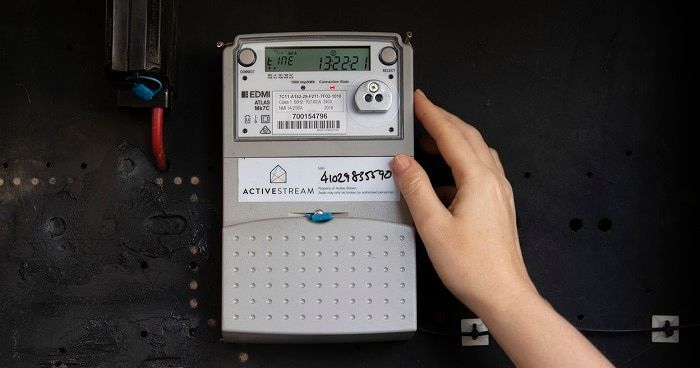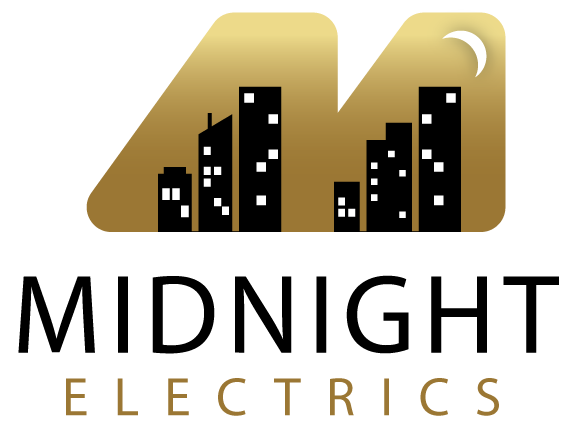Exploring Smart Meters in NSW: A Comprehensive Guide
Smart Meters in NSW
In today’s rapidly evolving world of technology and innovation, the energy sector is not far behind in adopting smart solutions to enhance efficiency and provide better services. Smart meters, often referred to as advanced meters or ‘type 4’ meters, have become a crucial part of this transformation.
These digital devices have revolutionised the way we measure and manage our electricity consumption. This blog post delves into the world of smart meters, exploring what they are, their benefits, installation procedures, safety considerations, and the impact of the Power of Choice reforms on the energy landscape in New South Wales.
Photo credit: NSW electricity ombudsman
What is a Smart Meter?
A smart meter is a state-of-the-art device designed to digitally measure your electricity usage. Unlike traditional meters, which require manual readings by meter readers, smart meters automatically record when and how much electricity is consumed at your premises. This data is then transmitted remotely to your energy retailer, streamlining the billing process and eliminating the need for physical visits to your property.
Moreover, smart meters offer a range of remote capabilities, such as enabling electricity supply to be remotely activated or deactivated without the intervention of field technicians. They can also assess the power quality at your premises and promptly notify your electricity distributor in case of power outages.
Benefits of Smart Meters
Smart meters provide numerous advantages to both consumers and the energy industry. Here are some key benefits:
- Enhanced Control: Smart meters empower consumers to take control of their electricity consumption by providing real-time information about when and how much energy they use. This data allows users to make informed decisions, adjust their usage patterns, and potentially save on their electricity bills.
- Access to Additional Services: Smart meters open the door to a wider range of services, including the integration of battery storage solutions. They also offer detailed insights into energy consumption, which can help consumers understand their usage better and make informed choices regarding their electricity plans.
- Innovative Products and Services: Electricity retailers can leverage smart meters to offer innovative products and services, such as energy management apps and online access to personalised electricity consumption information. This fosters greater consumer engagement and satisfaction.
- Improved Outage Detection: Smart meters enable electricity distributors to detect outages more quickly and monitor the quality of electricity supply. This proactive approach minimises the frequency and duration of power outages, ensuring a more reliable energy supply.
Acquiring a Smart Meter
Obtaining a smart meter is relatively straightforward, as there are several avenues for installation:
1. Retailer Offer: Your electricity retailer may offer a product or service that necessitates the installation of a smart meter. This is a common scenario when switching to specific plans or packages.
2. Replacement: If your current electricity meter is faulty or has reached the end of its operational life, it will require replacement. In such cases, you will receive a smart meter as a replacement.
3. Retailer Comparison: You can explore the offers from different electricity retailers to find the best-suited smart meter plan for your needs. Energy Made Easy, an independent price comparison website, can assist you in comparing available electricity offers in your local area.
Safety Assurance
One of the primary concerns associated with smart meters is safety. It’s essential to know that smart meters in New South Wales are manufactured and installed in compliance with Australian Standards. They are subject to electromagnetic exposure limits set by the Australian Radiation Protection and Nuclear Safety Agency (ARPANSA), which are equivalent to the limits applied to devices like mobile phones, Wi-Fi routers, and baby monitors.
For more detailed information about the safety of smart meters, you can refer to ARPANSA’s dedicated web page on this topic.
Cost Considerations
The introduction of smart meters is aimed at reducing operating costs for electricity retailers and distributors, which, in turn, should lead to better services for customers. However, the way these costs are passed on to consumers may vary among retailers. Here are some factors to consider regarding costs:
1. Upfront Charges: Retailers may choose to charge an upfront fee for the smart meter installation. This fee could appear as a lump sum on your next bill.
2. Monthly Fees: Some retailers may opt to charge a recurring monthly fee for the smart meter. This fee should be clearly indicated on your electricity bill.
3. Incorporated Costs: Alternatively, retailers might choose to include the cost of providing new meters in their electricity usage charges.
To ensure transparency and make informed decisions, it’s advisable to inquire with your retailer about the meter’s cost, installation charges, and any ongoing fees associated with it. You can also explore alternative retailers offering competitive pricing using Energy Made Easy’s services.
Smart Meter Installation
The installation of a smart meter involves a brief interruption of your electricity supply. Retailers are required to provide you with at least four business days’ notice before conducting the installation. The notice should include details such as the scheduled date, time, and duration of the planned interruption. Additionally, your retailer must furnish a 24-hour telephone number for inquiries and ensure a swift restoration of your supply post-installation.
Opting Out
In some instances, you may not wish to have a smart meter installed at your property. The regulations regarding opting out are as follows:
1. Mandatory Installation: Retailers are obligated to install smart meters for new connections, when a meter is faulty, or when it has reached the end of its operational life and requires replacement. In such cases, you can request the retailer to disable the communications functions if you do not wish to use the smart features. However, there may be additional costs associated with manual meter readings in this scenario.
2. Voluntary Installation: If your existing meter is functioning correctly, and a retailer proposes replacing it with a smart meter, you have the option to opt out of the installation. Note that this is only possible if you haven’t waived your right to opt out when signing up for your current electricity contract.
Privacy and Data Security
Privacy is a paramount concern when it comes to smart meter data. Rest assured that your energy data and personal information are safeguarded by the National Electricity Law and the Privacy Act of 1988. These regulations ensure that your data remains confidential and secure.
Addressing Issues
If you encounter problems or have concerns related to your smart meter, it’s important to know how to address them effectively:
1. Meter Problems: Since December 1, 2017, your retailer is responsible for the meter at your property. If you suspect a problem or fault with your meter, contact your electricity retailer for assistance.
2. Distributor Contact: In the event of electricity or gas supply disruptions, blackouts, poor supply quality, or emergencies such as downed electricity poles, you should get in touch with your distributor, the entity responsible for the poles and wires.
3. Complaints: If you experience issues with your retailer or require additional assistance, your state or territory’s energy ombudsman can help resolve complaints related to your electricity retailer. Common matters that the ombudsman can address include billing problems following the installation of a smart meter, customer service issues during installation, and meter exchange problems.
Bill Increases and Smart Meters
It’s worth noting that older analogue meters sometimes under-record household electricity consumption, which can result in lower bills. When transitioning to smart meters, the increased accuracy may initially give the impression of higher bills. This is due to the more precise measurement of electricity usage. However, the long-term benefits of smart meters, such as cost savings and enhanced control, often outweigh the initial adjustment.
Power of Choice Reforms
The Power of Choice is a comprehensive set of reforms designed to provide consumers with greater options and control over their electricity usage and management. These reforms were initiated following a review by the Australian Energy Market Commission (AEMC) in 2012.
Key elements of the Power of Choice reforms include introducing competition in metering services and reducing barriers for embedded network customers to access offers from electricity retailers through a new embedded network manager role. These rule changes came into effect on December 1, 2017.
The Power of Choice reforms offer the following benefits:
- Competitive Deployment of Smart Meters: These reforms facilitate the widespread deployment of smart meters, offering residential, small business, and embedded network customers greater choice in the retail energy market.
- More Frequent Energy Usage Data: Customers can access more frequent data on their energy usage, allowing for better-informed decisions regarding energy consumption.
- Expanded Pricing Options: The reforms introduce a broader range of pricing options, empowering consumers to select the plans that best suit their needs.
- Access to Smart Meter-Enabled Services: Customers can access products and services that leverage the capabilities of smart meters, such as demand management solutions.
The adoption of smart meters is transforming the energy landscape in New South Wales, providing consumers with greater control over their electricity consumption and opening the door to innovative products and services. These digital devices not only enhance the accuracy of billing but also improve the reliability of electricity supply. Additionally, the Power of Choice reforms are set to further empower consumers by expanding their options and increasing transparency in the energy market.
As an
electrician in NSW, staying informed about smart meters and their benefits can help you better assist your clients and guide them through the installation process. Whether it’s taking advantage of competitive pricing, accessing real-time usage data, or enjoying the peace of mind that comes with improved
power outage detection, smart meters have much to offer both consumers and service providers in the ever-evolving world of energy technology.

































